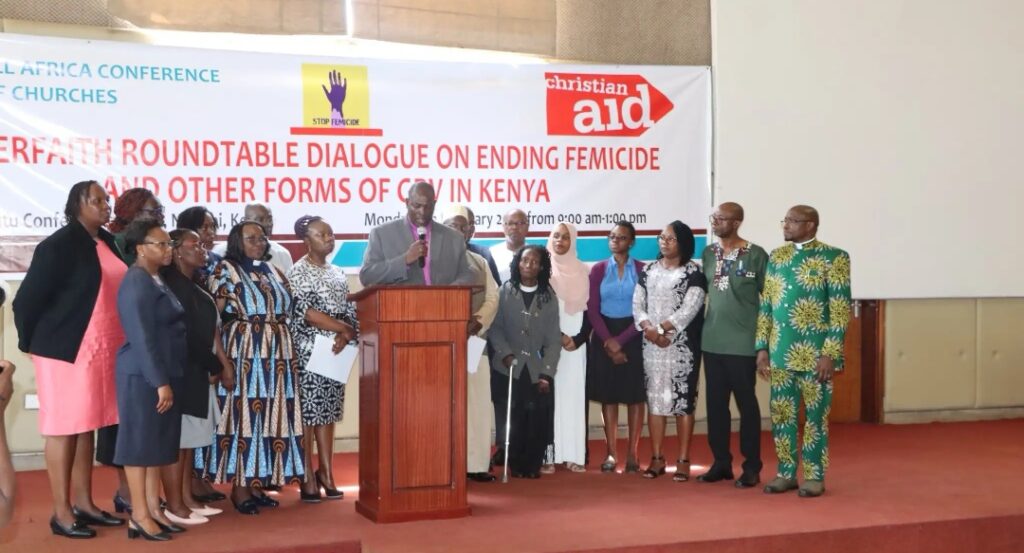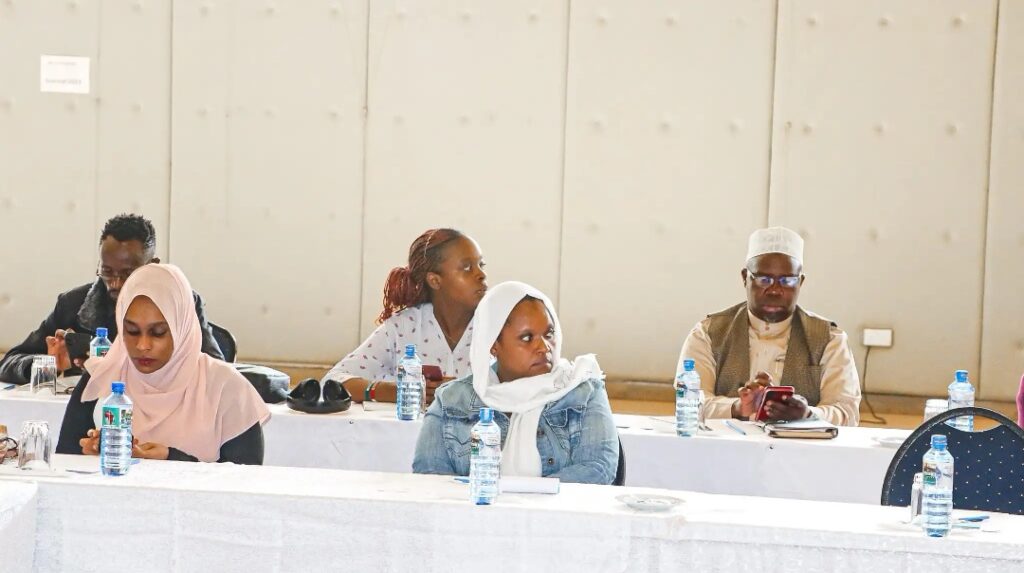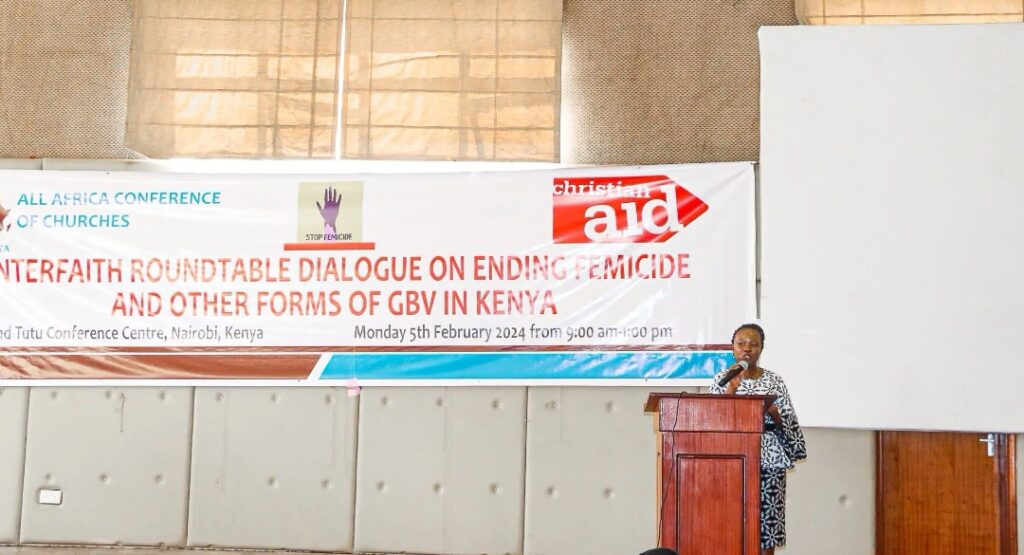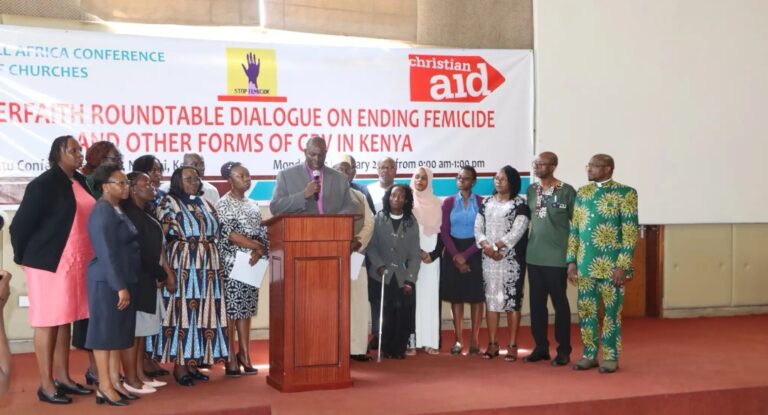
Nairobi, February 5, 2024 – In a powerful display of unity transcending religious boundaries, the Kenyan faith community gathered Monday for an Interfaith Roundtable Dialogue to address the pressing issue of femicide and escalating gender-based violence (GBV) in the nation.
The urgency of this dialogue was drawn to attention by recent high-profile cases, including the tragic stabbing of 26-year-old Starlet Wahu and the brutal murder of 20-year-old Rita Waeni. Disturbingly, femicide cases in Kenya have surged, with 152 reported in 2023 – the highest in the past five years, and 14 already in January 2024, according to Femicide Count Kenya.
Kenya Demographic and Health Survey (KDHS) figures reveal that over 40 percent of women have experienced physical or sexual intimate partner violence, a stark reminder that the reported cases only scratch the surface of the pervasive issue.
The faith leaders emphasized the need for a collective response, rejecting the notion that gender-based violence is a private matter. “It is a matter of life and death; a matter of human security, dignity, faith, human rights, and is key to the prosperity of the entire nation,” they declared.

Commendation and Call to Action
Commending the media for shedding light on these heinous acts, the faith community urged continuous coverage and applauded organizations actively condemning gender-based violence, including those marching on the streets.
A resounding call was directed towards the government of Kenya, urging swift efforts to bring perpetrators to justice. The faith leaders called for the enforcement of existing laws and policies, including the Sexual Offences Act (2006) and the National Policy on Prevention and Response to Gender-based Violence 2014. They further pressed the government to uphold international commitments by enforcing ratified treaties such as the Maputo Protocol and CEDAW.

Call to Institutions and Commitment of the Faith Community
In a call to institutions of learning, the faith leaders urged the instillation of values for human life and respect for the dignity inherent in every human being.
The faith community, united across diverse beliefs, pledged a comprehensive commitment to addressing the issue. This commitment includes education and awareness programs, interfaith collaboration to challenge toxic societal norms, support services for survivors, and advocacy for strengthening legal frameworks.
The faith community issued a passionate plea to all citizens, regardless of religious affiliation, to join hands in the fight against femicide. They emphasized the collective responsibility to create a society where women can live free from fear, violence, and discrimination.
Reporting by JAMES MUTUA
